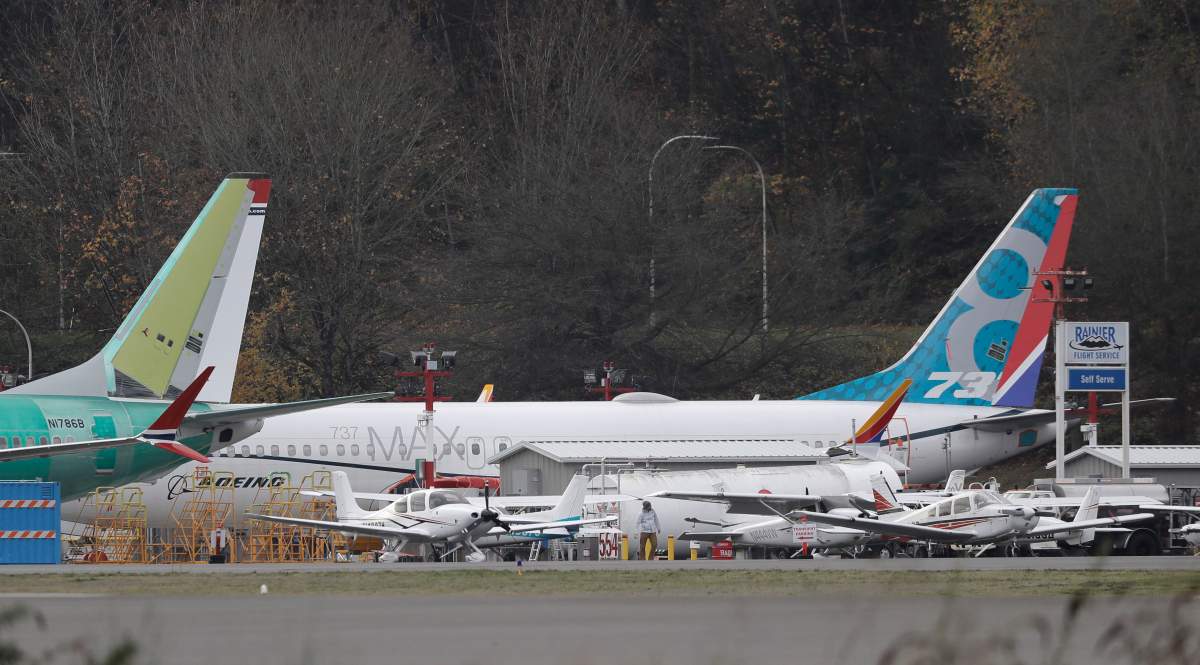American Airlines Group Inc said on Wednesday it was “unaware” of some functions of an anti-stall system on Boeing Co’s 737 MAX until last week.

Boeing and the U.S. Federal Aviation Administration (FAA) issued guidance on the system last week after a Lion Air jet crashed in Indonesia on Oct. 29, killing all 189 people on board.
Coverage of the Lion Air crash on Globalnews.ca:
The FAA warned airlines last week that erroneous inputs from the system’s sensors could lead the jet to automatically pitch its nose down even when autopilot is turned off, making it difficult for pilots to control.

Get daily National news
The system was designed to prevent the jet from stalling, according to information provided by Boeing to airlines.
“We value our partnership with Boeing, but were unaware of some of the functionality of the Maneuvering Characteristics Augmentation System (MCAS) installed on the MAX 8,” an American Airlines spokesman said.
“We must ensure that our pilots are fully trained on procedures and understand key systems on the aircraft they fly.”
Indonesian investigators said on Monday the situation the crew of a doomed Lion Air jet was believed to have faced was not contained in the aircraft’s flight manual. U.S. pilot unions were also not aware of potential risks, pilot unions told Reuters.
The FAA and Boeing are evaluating the need for software or design changes to 737 MAX jets in the wake of the Lion Air crash, the regulator said on Tuesday.
READ MORE: Boeing issues bulletin on 737 Max planes after one crashed in Indonesia
The American Airlines spokesman said his airline was continuing to work with Boeing and the FAA and would keep pilots informed of any updates.
A Boeing spokeswoman said the manufacturer could not discuss specifics of an ongoing investigation but it had provided two updates for operators around the world that re-emphasize existing procedures to deal with situations relating to MCAS.
“We are confident in the safety of the 737 MAX,” she said. “Safety remains our top priority and is a core value for everyone at Boeing.”
- ‘Potentially catastrophic’ winter storm set to hit southern part of U.S
- Danish lawmaker cut off after telling Trump to ‘f–k off’ — again — over Greenland
- Toronto man accused of posing as pilot to get hundreds of free flights arrested
- Ryanair CEO launches ‘Great Idiots’ seat sale aimed at Elon Musk amid feud












Comments